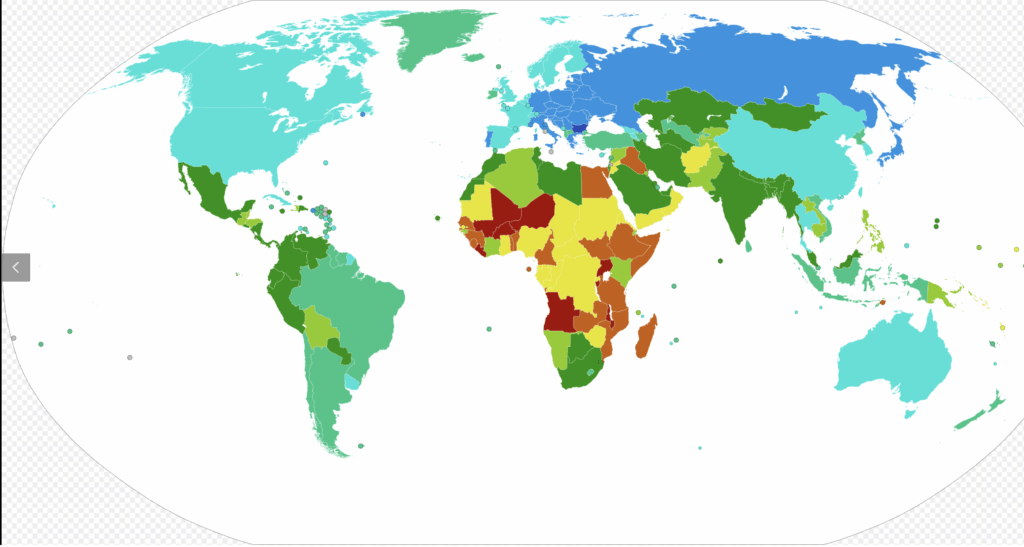How Low Could We Go?

John Quiggin assembles some thinking on the question:
Much of the panic about falling birth rates can be dispelled once we realise that (barring catastrophe) there will almost certainly be more people alive in 2100 than there were in 2000. But what about the distant future? Dean Spears, co-author of After the Spike has kindly provided me with projections showing that with likely declines in fertility the world population will decline by half each century after 2100, reaching one billion around 2400. Would that be too few to sustain a modern civilisation ?
We can answer this pretty easily from past experience. In the second half of 20th century, the modern economy consisted of the member countries of the Organization For Economic Co-Operation and Development (OECD). Originally including the countries of Western Europe and North America, and soon extended to include Australia and Japan, the OECD countries were responsible for the great majority of the global industrial economy, including manufacturing, modern services, and technological innovation.
I have the Spears book on my shelf and should give it a read. Three points worth remembering:
- There is far less reason to panic than the most dedicated pronatalists offer. The general depopulation of the Earth will, sans nuclear war or drastic environmental collapse, take centuries. Much of this conversation about declining birth rates is wrapped up implicitly (or explicitly; thanks Elon!) in questions of white supremacy and immigration, which basically makes panic stupid and useless.
- It is very difficult to predict social and demographic trends one hundred years out in the context of technological changes, so difficult that it’s almost useless to make the effort.
- The key question is not “can human civilization survive with a declining population?” as the obvious answer is “Yes.” The question is “what kind of impact would demographic decline have on existing social, political, and economic structures?”
Other commentary on the Spears book:
And Tim Burke makes a useful point:
In the second half of the twentieth century we went through a couple generations of thinking about how strong government action probably would be necessary to curtail population control (post-war science fiction is literally drenched in this stuff) which fortunately in the West never resulted in serious government efforts at population control (although more of the advocacy alliances that made possible legal abortion and legal birth control have population control as an implicit or explicit logic than you’d probably like to remember). In China concerns over the need for population control resulted in a harsh, brutal, and invasive policy designed to rapidly reduce family size, including forced abortion and lowkey off-the-books infanticide. Through this brutality China effectively created for itself a pretty dreadful demographic problem, albeit a different one than it had expected. I’ll further add that while folks correctly and justifiably point to the Great Leap Forward and the Cultural Revolution as Great Moments in the History of State Brutality, the One Child Policy (which was at least as invasive of personal liberty and more consequential in terms of demographic effect) for a long time got a complete pass from American commentators, other than a few fringe anti-abortion fanatics on the Far Right, because after all who needed more Chinese people?
In short, take care in fashioning drastic social interventions based on sketchy data projections.


